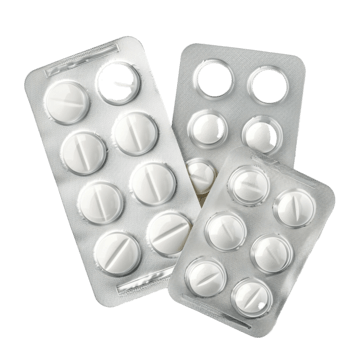Ketorolac

Ketorolac 10mg, 15mg, 30mg
Ketorolac is a powerful nonsteroidal anti-inflammatory drug (NSAID) used to manage moderate to severe pain, typically after surgery or injury. It works by inhibiting the production of prostaglandins, which are chemicals in the body responsible for pain and inflammation. Ketorolac is often prescribed for short-term use due to its potential side effects, providing effective pain relief without the need for opioids.
Order NowDescription
Ketorolac is a powerful nonsteroidal anti-inflammatory drug (NSAID) primarily used for the short-term management of moderate to severe pain, often following surgical procedures. It works by inhibiting the production of prostaglandins, substances in the body that mediate inflammation and pain.
Uses / Indications
- Post-operative pain relief
- Acute pain management
- Pain due to traumatic injury
- Pain related to certain medical procedures
- Short-term management of pain in adults
Dosage and Administration
Adults (initially):
10 mg to 30 mg every 4 to 6 hours as needed; maximum of 40 mg per day.
Children:
Dosage for children varies; consult a healthcare provider for appropriate dosing.
Note: Dosage may differ based on individual needs and medical guidance.
How It Works (Mechanism of Action)
Ketorolac works by inhibiting the enzyme cyclooxygenase (COX), which is responsible for the formation of prostaglandins. By blocking COX, Ketorolac reduces inflammation and alleviates pain, providing effective relief for various conditions.
Side Effects
Common side effects:
- Nausea
- Dizziness or lightheadedness
- Stomach pain or discomfort
- Headache
Rare/serious side effects:
- Gastrointestinal bleeding or ulcers
- Kidney problems (elevated creatinine levels)
- Severe allergic reactions (rash, itching, swelling)
If serious side effects occur, seek medical attention immediately.
Precautions / Warnings
- Inform your doctor if you have a history of stomach ulcers, gastrointestinal bleeding, or kidney disease
- Use cautiously in older adults, as they may be more sensitive to side effects
- Limit use to no more than 5 days for pain management
Drug Interactions
May interact with:
- Other NSAIDs (increased risk of gastrointestinal bleeding)
- Blood thinners (warfarin, heparin)
- Certain antidepressants (increased risk of bleeding)
- Diuretics (may affect kidney function)
Always inform your healthcare provider about any other medications you’re taking.
Storage Instructions
- Store at room temperature (20°C–25°C / 68°F–77°F)
- Keep away from moisture, heat, and direct light
- Do not freeze liquid forms
- Keep out of reach of children
Missed Dose / Overdose
Missed a dose?
If you miss a dose, take it as soon as you remember. If it’s almost time for your next dose, skip the missed one. Do not double up.
Overdose symptoms:
- Severe drowsiness
- Gastrointestinal bleeding (e.g., blood in stool)
- Shortness of breath
- Nausea or vomiting
Contact a poison control center or seek emergency medical help immediately if an overdose is suspected.
Contraindications
- Allergic to Ketorolac or any NSAIDs
- History of gastrointestinal bleeding or ulcers
- Severe kidney impairment
Brand Names / Alternatives
- Toradol
- Acular (for ophthalmic use)
- Generic name: Ketorolac

